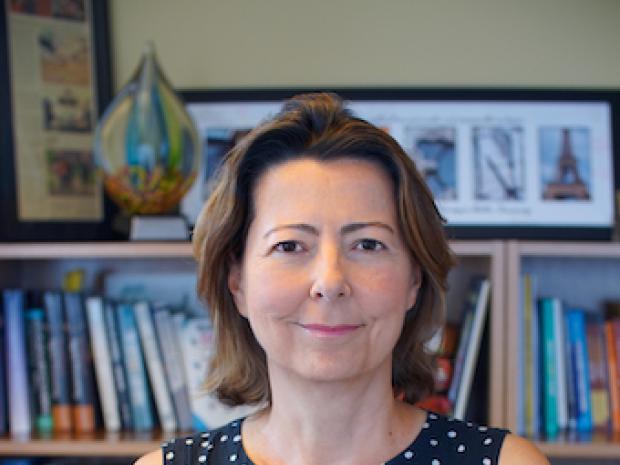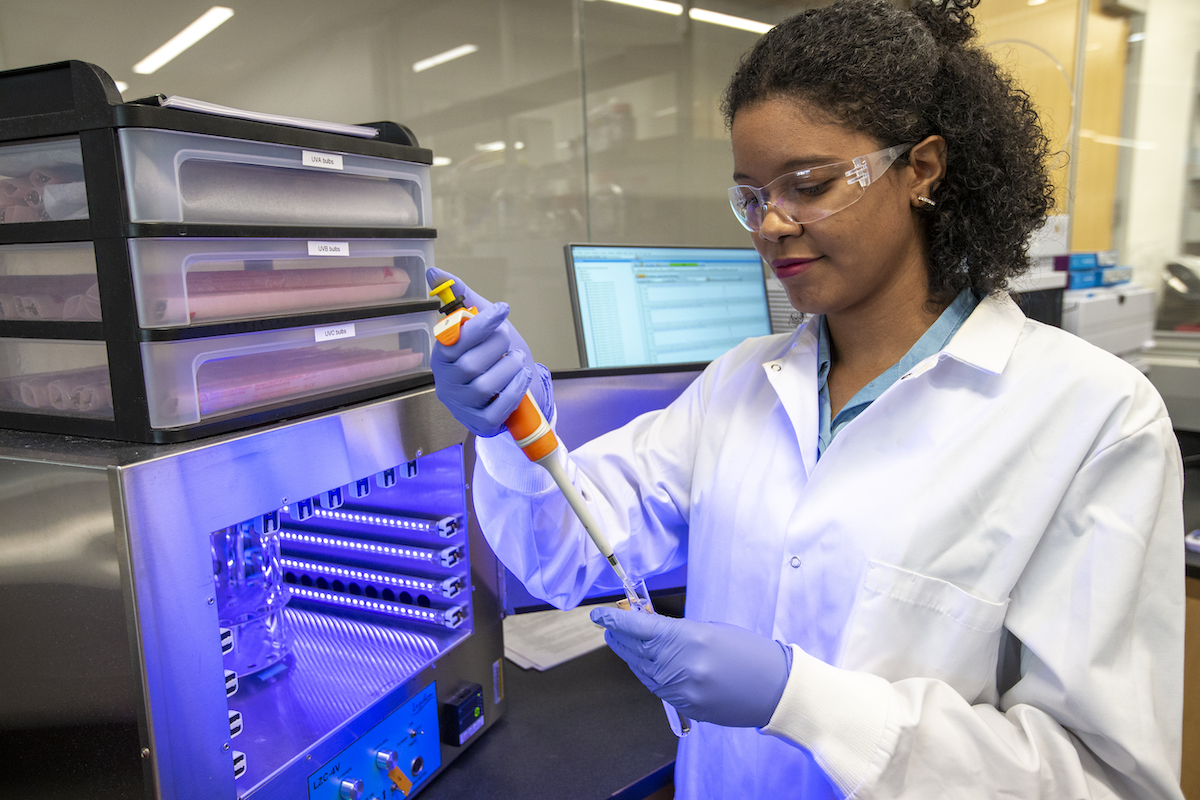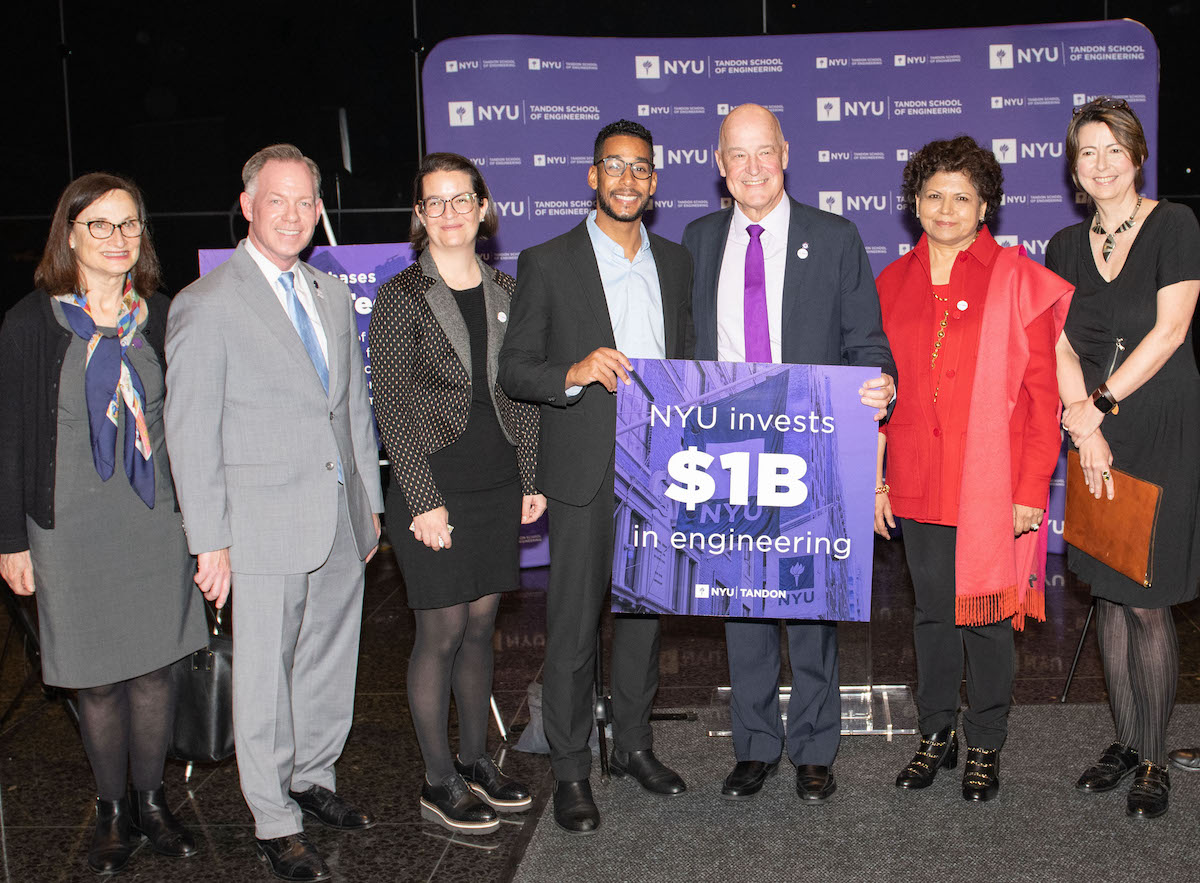Letter from the Dean
Volume 4: Next | 2022- 2023

Every Fall for the last several years, we have created a book like this one, which we affectionately refer to as our “Year in Review,” as it has always reflected back on the amazing accomplishments of our Tandon community in the prior academic year. This year, we’re taking a different tack.
 As the poet Robert Penn Warren wrote, “History cannot give us a program for the future, but it can give us a fuller understanding of ourselves, and of our common humanity, so that we can better face the future.” In other words, reflecting back is important insofar as it illuminates where we need to go. I take great pride in working here, a place with a rich history that dates back to 1854 that played a vital role in landing men on the Moon and paving the way for 5G and next-generation wireless, among countless other world-changing accomplishments. But what I’m most excited to share are the new discoveries that our faculty and students work to uncover and build every day.
As the poet Robert Penn Warren wrote, “History cannot give us a program for the future, but it can give us a fuller understanding of ourselves, and of our common humanity, so that we can better face the future.” In other words, reflecting back is important insofar as it illuminates where we need to go. I take great pride in working here, a place with a rich history that dates back to 1854 that played a vital role in landing men on the Moon and paving the way for 5G and next-generation wireless, among countless other world-changing accomplishments. But what I’m most excited to share are the new discoveries that our faculty and students work to uncover and build every day.
That’s why this year, we are focusing less on what’s happened and more on what’s next. Engineers are notoriously reticent about predicting the actual future — but they are exceptionally passionate when talking about the problems they’re working on, and what they hope engineering and technology will be able to do to address them. So we’ve asked our community to share not only what they have achieved this past year, but what they see lying just beyond the horizon in their chosen areas. Because no matter what projects they’re working on and whatever their disciplines, NYU Tandon researchers are engineering optimism. They’re seeking solutions to some of the most intractable problems facing the world today — and, as you’ll read, they’re making real progress.

One of the things you may have heard about in the last year that is essential to that progress both today and moving forward is New York University’s long-term investment of $1 billion in engineering — an unprecedented show of faith in the transformative work being done by Tandon’s researchers and colleagues across the university, nation and planet — all in the name of engineering. That commitment is allowing us to modernize and expand our lab, teaching and learning spaces, including the acquisition of 3 MetroTech; nearly double our faculty members committed to interdisciplinary collaboration; and offer our students greater opportunities for hands-on research and experiential learning — resulting in graduates who will be exceptionally well-equipped to solve complex problems.
This investment is already paying off; in the last year alone, we saw more than 31,500 total applications for Fall 2023 (the highest ever, including a 30.7% YoY increase in UG applications), 19 new faculty hired, $56.6M research expenditures, nearly 700 students participating in our Vertically Integrated Projects hands-on learning program, and 96% of graduates going on to jobs or graduate school within 6 months.
It is the privilege of my life to have been a part of the breakthroughs and potential you’ll read about here, and I, for one, can’t wait to find out what our faculty and students accomplish next.
— Jelena

